We are proud to announce that Professor Xiangming Chen, Professor John Elliott, Professor Makoto Yoshida, Professor Ingrid Pramling Samuelsson, Professor Ference Marton and Professor Ulla Runesson have been invited as keynote speakers.
----
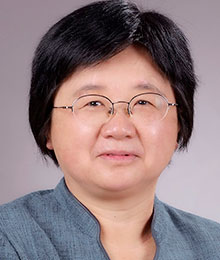 |
Lesson Study as Mediation in Chinese. Teachers' Enactment of Curriculum Reform
Xiangming Chen, Graduate School of Education, Peking University, China
In this keynote speech, I will introduce how Chinese teachers use lesson study as a mediating tool in their joint efforts to understand, reframe and enact the current national curriculum initiated top-down from the Ministry of Education. Through case studies of some typical examples, I aim to reveal how the meanings of the national curriculum reform have changed in its transmission from the outside authoritative mandate to the local school practice by way of teachers' lesson study.
Due to the marked differences between the professional reform discourse and the teachers' own native discourse, the meanings of the reform tend to look "alien" to school teachers from the outset. In order to make sense out of the reform, school teachers make use of lesson study activities such as public lessons, relay of research lessons, group discussion, memo writing and action research, to deal with the "problems" that occur in their practice. Through active engagement in dialogue with each other, teachers come to a temporary consensus about the meanings of the reform that is understandable and acceptable to them as well as to the complex socio-cultural context in Chinese schools.
The unit of analysis of the case studies introduced in this speech is the lesson study cycle, and the focus is placed on teachers' discourse as representation of their understanding and enactment of the reform. By analyzing the transformation of their discourse in the lesson study activities, my research attempts to reveal teachers' practical knowledge as well as their meaning-making mechanism embodied in their actions and embedded in their practice. It is hoped that a deeper appreciation of teachers' native discourse as revealed in such social and situated learning activities as lesson study can shed light on a more accurate understanding about how teachers learn and grow in the times of reform.
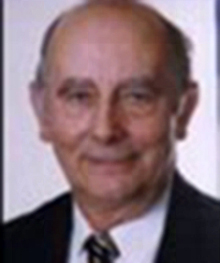 |
Lesson and learning studies as a new context for the further development of Stenhouse's idea of the 'teacher as researcher'.
John Elliott, Centre for Applied Research in Education at the University of East Anglia,
Teacher research is now widely practiced in many countries. Indeed it is now often subsumed under the more generic term 'practitioner research' to depict a process in which social practitioners take responsibility for researching aspects of their practice in order to improve it. In the UK context the idea that teachers take responsibility for researching their teaching is often attributed to Lawrence Stenhouse (1975). However, in this paper I want to ague that Stenhouse's conception of 'teacher research' significantly differs in a number of respects from the kind of research that is often depicted as such to-day. I will pinpoint these differences and argue that what has been lost along the way is worth recovering for the sake of education in contemporary practice settings. In this connection I will explore the potential of lesson and learning studies as forms of teacher research, originating from Japan and Hong Kong respectively, which are increasingly attracting interest as models of teacher research.in the west. To what extent do these kinds of studies embody the main features of Stenhouse's idea of the 'teacher as researcher', and even progress the idea and ways of realising it in practice further?
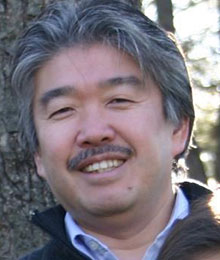 |
|
Prof. Makoto Yoshida |
Lesson Study's Role in Making a Successful Transition to Implementing New Standards: Examination of the Lesson Study System, Role, and Historical Perspective in Japan and the U.S.
Makoto Yoshida, Center for Lesson Study, William Paterson University, Wayne, NJ, U.S.A.
It has been over ten years since lesson study was introduced into the U.S. from Japan. Although some lesson study groups exist and are actively practicing and promoting lesson study in the U.S., it is hard to say that lesson study has established strong roots in the U.S. and is providing a significant impact on improving mathematics instruction and learning in classrooms.
In 2010, new standards called "The Common Core State Standards for Mathematics (CCSS-M)" were introduced in the U.S. and have been adopted by 45 states. Most of the states are currently in a transition period since the standards will not be fully in force until the 2014 school year. Many educators are excited about the new standards but the transition process has not been easy and many issues have arisen. For example, the lack of on-going professional development for teachers is hindering the understanding of both content and philosophy of the new standards making it difficult to improve teachers' content knowledge and pedagogy. In addition, lack of supporting materials, such as instructional guides for CCSS-M and textbooks that are truly aligned with CCSS-M are not completely developed. Even though similar problems were identified in the past when states introduced new standards the same mistakes are being made once again. It is as if teachers are left alone and it is up to them to figure out how to make this transition happen.
In 2008, Japan also introduced a new "Mathematics Course of Study." The transitional period started in 2009, and the transition was complete in April of 2011. Although the transitional period has not been easy for teachers in Japan either, textbooks were updated according to the course of study specifications. In addition, during the course of the transition teachers studied the new Course of Study, the Teaching Guide for the Course of Study, and the new textbooks through school based professional development with lesson study. Many public research lessons were conducted and discussed in order to educate teachers to make the transition successfully. This resulted in new ideas and changes in the Course of Study. Lesson study provided a way for Japanese educators to develop a systematic approach to dealing with the changes in the Couse of Study and thus played an important role in this transition.
In this presentation, issues pertaining to lesson study's role in making transition the to new standards will be discussed by comparing the practice of lesson study and support systems in the U.S. and Japan. Discussing lesson study as a means to facilitate and inform the adoption of new standards can help us think about the role of lesson study in the system of classroom practice during the process of making the transition to new standards.
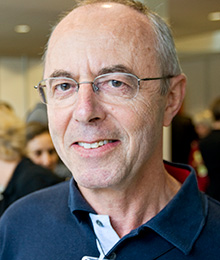 |
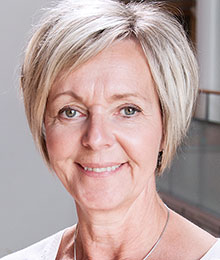 |
|
Prof. Ference Marton |
Prof. Ulla Runesson |
What is to be learned?
Ference Marton, Professor Emeritus at the Faculty of Education, University of Gothenburg, and
Ulla Runesson, Professor at the School of Education and Communication, Jönköping University
Learning in school is supposed to be intentional. Teachers are expected to have reasonably clear ideas about what they hope that their students will learn. What they do in the classroom is a function of what they are trying to help their students to achieve. The goals are captured in terms of educational objectives, learning outcomes, learning targets and so on. These are statements about what the students are supposed to learn. But are they really? Do they tell the students, the teachers or anybody else, for that matter, what is to be learned? We do not think so.
What such statements tell us is what the students are supposed to become capable to do. Every goal is one and the same for all students taught together. But can we imagine that in order to get there, they have to learn the same things? If we believe that the target capability has different components and that some students have mastered some of them, while others have mastered others, we are bound to conclude that in order to develop the same capability, different student have to appropriate, in part, different things.
Component parts of the capability aimed at, that are missing, are critical features of that capability and it is these critical features that the students have to discern, notice, attend, well, learn. Furthermore, there are specific necessary conditions for this to happen. By creating such necessary conditions that learning is made possible.
In Hong Kong and in Sweden we have been very much impressed by the systematic and shared pedagogy of the Japanese lesson study and the Chinese teachers' research group. We have followed these models, but we found that we needed a more powerful answer to the question "What is to be learned?" This is actually the main question that we address in every Learning study that we engage in. We will illustrate this point with examples.
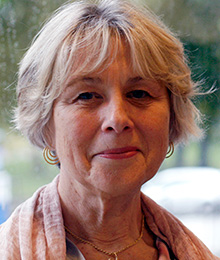 |
| Prof. Ingrid Pramling Samuelsson |
Orchestrating and studying children's and teachers' learning: Reflections on developmental research approaches
Ingrid Pramling Samuelsson, Professor at the Department of Education, Communication and Learning, University of Gothenburg
In the presentation it will be presented what characterizes the research studies that form the basis for the development pedagogy, an approach for early learning. This appraoch is based on an extensive research field with a focus on young children's learning in many different content areas and learning objects. It is this approach, what it means, and in particular how it has evolved as will be described. A comparison is also made between this kind of research and and 'Learning Studies', in which there are both similarities and differences.
Ingrid Pramling Samuelsson is Professor of Early Childhood, holds a UNESCO Chair in Early Childhood Education and Sustainable Development and is World President of OMEP (Organisation Mondiale pour l'Éducation Préscolaire). Her research has primarily been about children's learning of different content in preschool practice, children's perspectives, didactic issues, curriculum issues and preschool as a learning environment. She is currently working a lot with questions about education for sustainable development in an international perspective.
----
More information will be available shortly.
